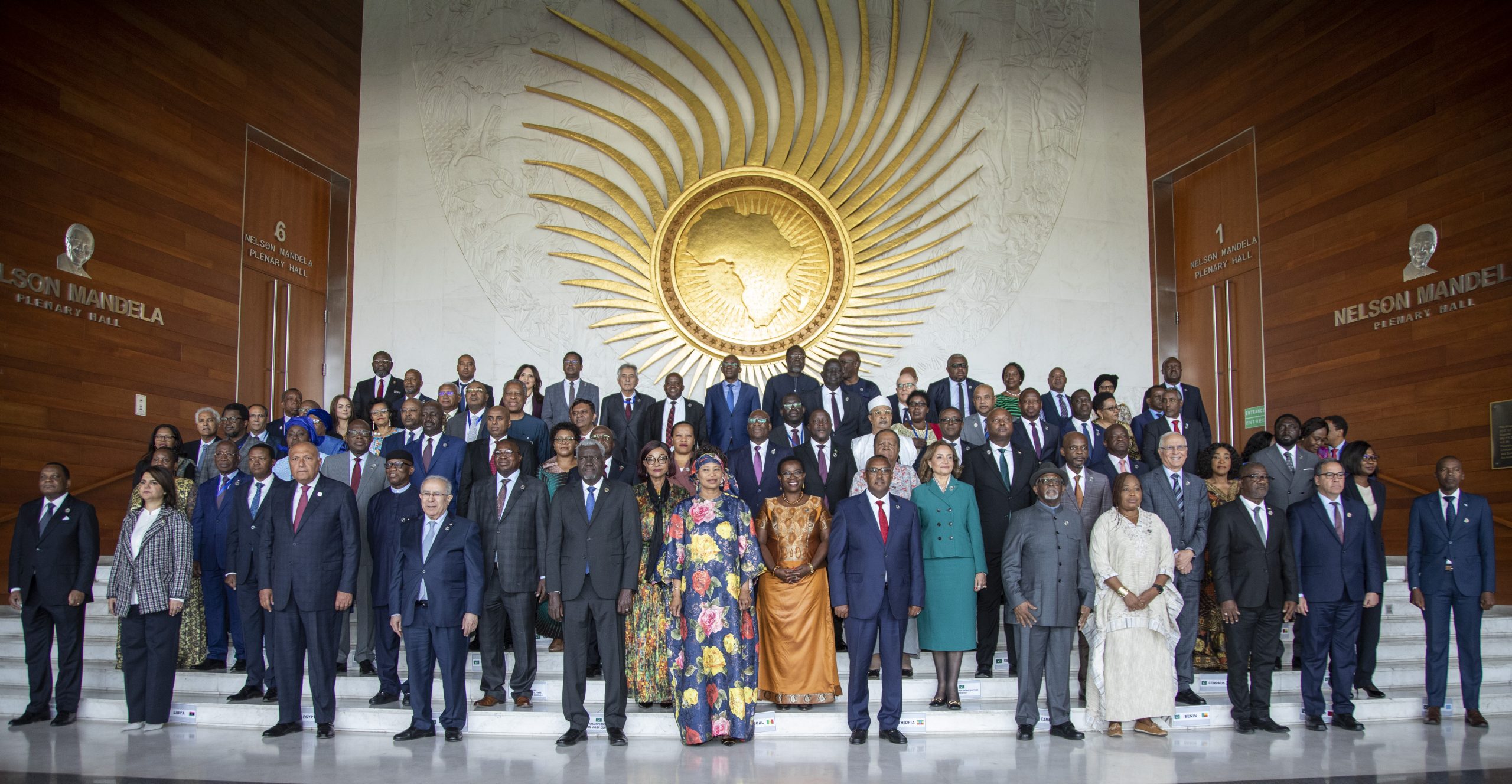African heads of state are in Addis Ababa, Ethiopia for the 42nd Ordinary Session of the Assembly of the African Union, with climate change and free trade dominating the talks.
Delegates will address challenges bedeviling the continent “and make far-reaching decisions on various political and socio-economic areas to promote and advance the welfare and quality of life for the African citizenry”, according to the program.
Albert Muchanga, Commissioner for Economic Development at AU said that the union together with Africa Development Bank reached a consensus for Inclusive Growth and Sustainable Development which currently stands at 40 percent, below the required level.
“We need to double this. Investment in areas of human capital, infrastructure, and business environment,” said Muchanga.
Besides, the continent expects to stabilize its economic growth after bouncing back from coronavirus shocks to hit 4.8 percent economic growth in 2021 and maintained a positive growth of 3.3 percent in 2022.
AfDB expects Africa to stabilize in 2023/24 at around 4 percent.
“Africa is doing better than other regions on the planet having implemented a number of the economic policy compared to where it is almost at par with Asia despite all the challenges we had with the coronavirus pandemic,” said Professor Kevin Urama, the Chief Economist and Vice President for the Economic Governance and Knowledge Management Complex – AfDB.
Going for opportunities amid climate change talk
At the same time, the U.S sent its delegation with high expectations to harness the African Continental Free Trade Area (AfCFTA). The Delegation is led by Molly Phee, the US assistant secretary for Africa, and former US ambassador to Kenya Johnnie Carson, now the Special Presidential Representative for US-Africa Leaders’ Summit Implementation.
The US seeks to reinforce America’s commitment to advance food security and highlight the ongoing work through the US government’s Feed the Future initiative, and efforts to scale up work on climate-resilient agriculture and soil health, including upcoming work on the “Vision for Adapted Crops and Soils
What’s more, the summit comes against the backdrop of an uptick in the number of people facing starvation and acute food shortage occasioned by erratic weather patterns and prolonged drought. According to British Red Cross, about 146 million people are going hungry. The situation has neem exacerbated by climate change.
The African Continental Free Trade Area (AfCFTA)
According to the African Union, the continent has embarked on eliminating trade barriers, aimed at raising Africa’s income by $450 billion by 2035.
“By eliminating barriers to trade in Africa, the African Continental Free Trade Area (AfCFTA) will lift 30 million people from extreme poverty and another 68 million people from moderate poverty,” AU said on Friday, February 17 in a statement.
As of February 2022, eight countries representing the five regions of the continent – Cameroon, Egypt, Ghana, Kenya, Mauritius, Rwanda, Tanzania, and Tunisia – participated in the AfCFTA’s Guided Trade Initiative (GTI).
The initiative seeks to facilitate trade among interested AfCFTA state parties that have met the minimum requirements for trade, under the Agreement. “In 2023, the AfCFTA Guided Trade shall also focus on Trade in Services in the five priority areas, namely: Tourism, transport, Business Services; Communication Services; Financial Services; Transport Services, and Tourism and Travel-related Services,” AU said.

